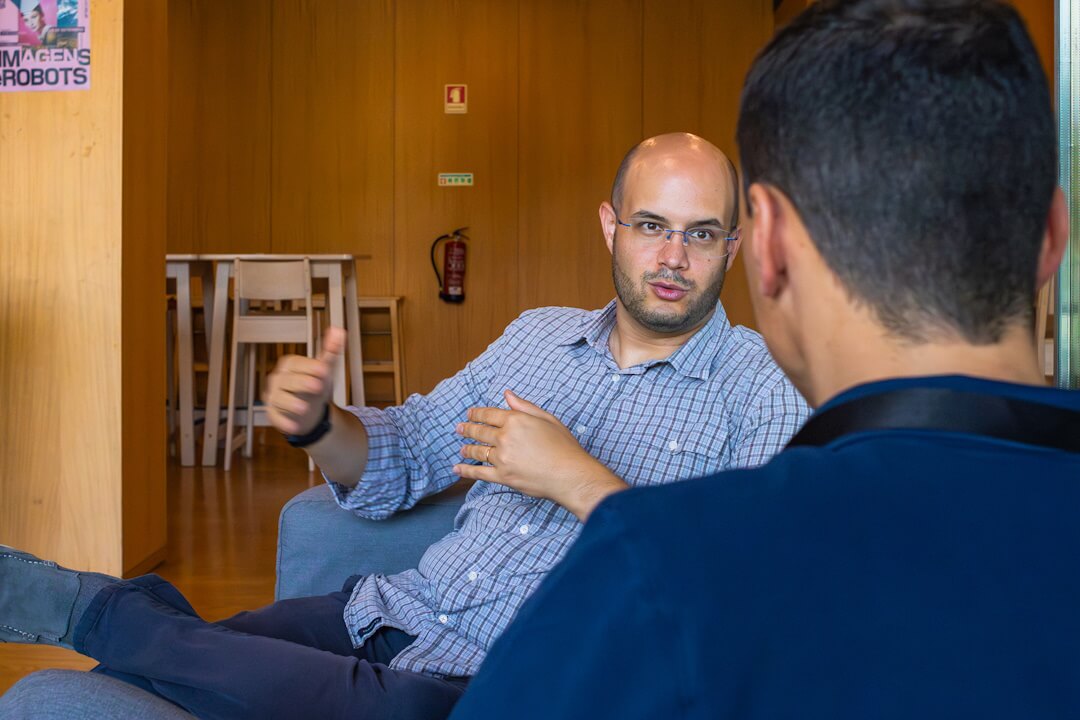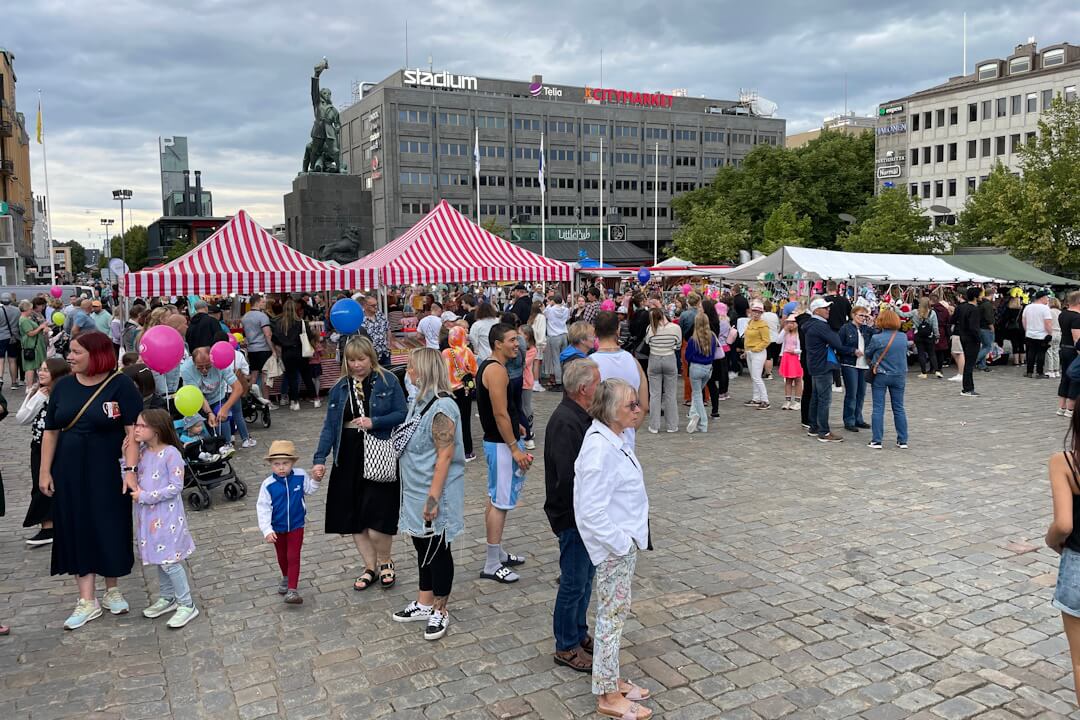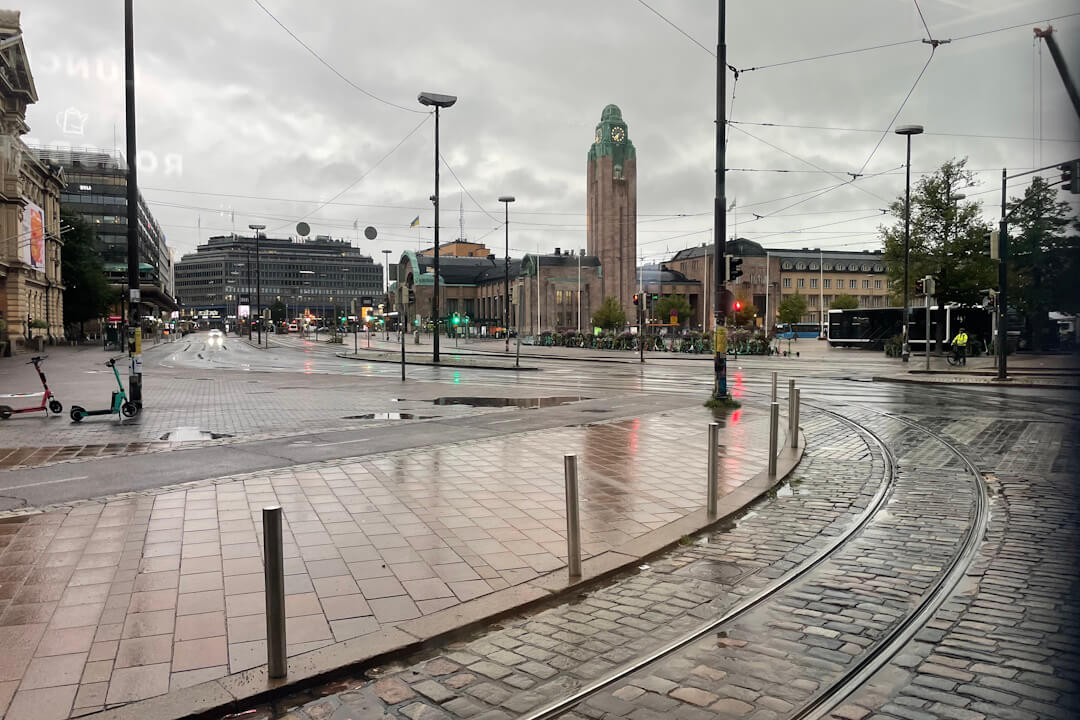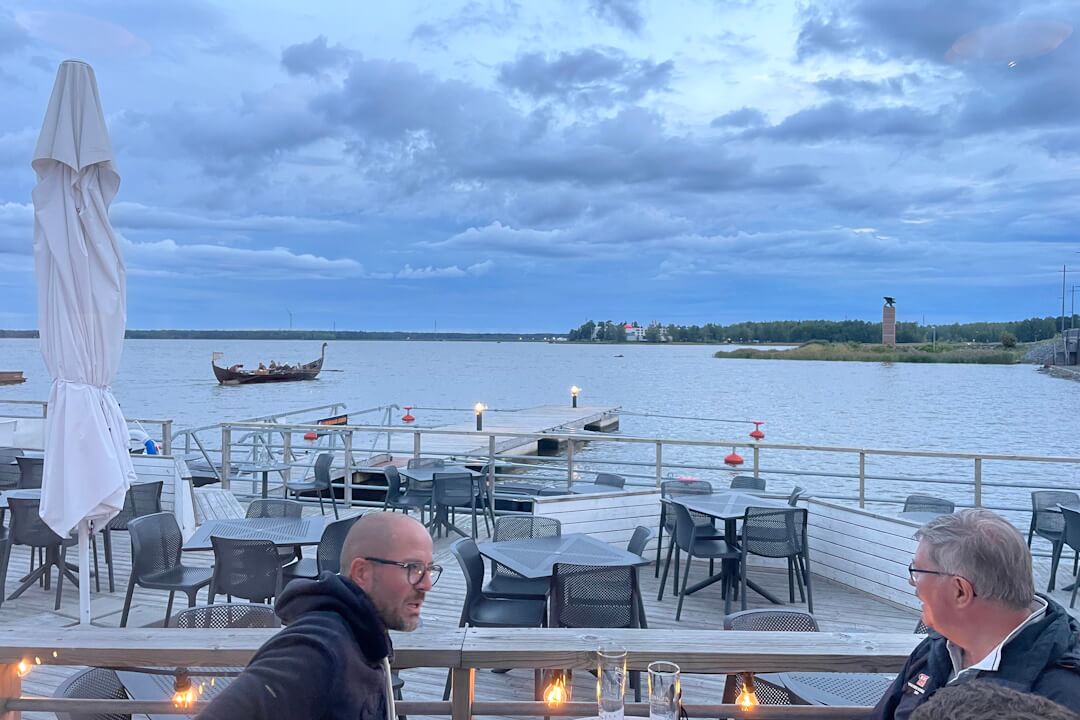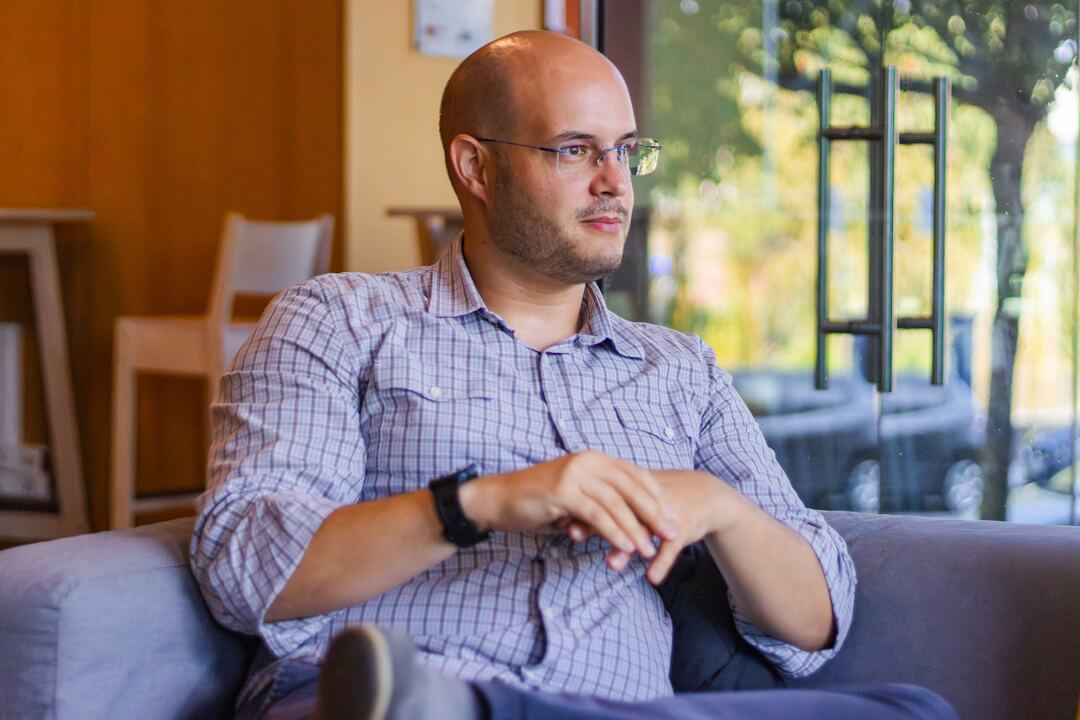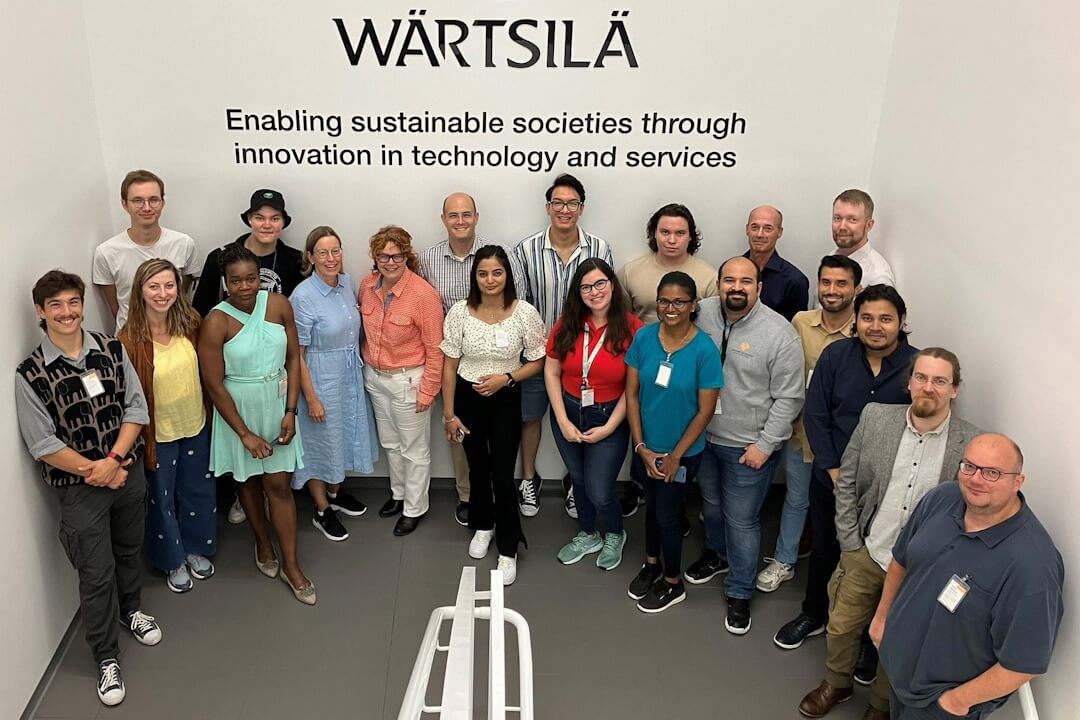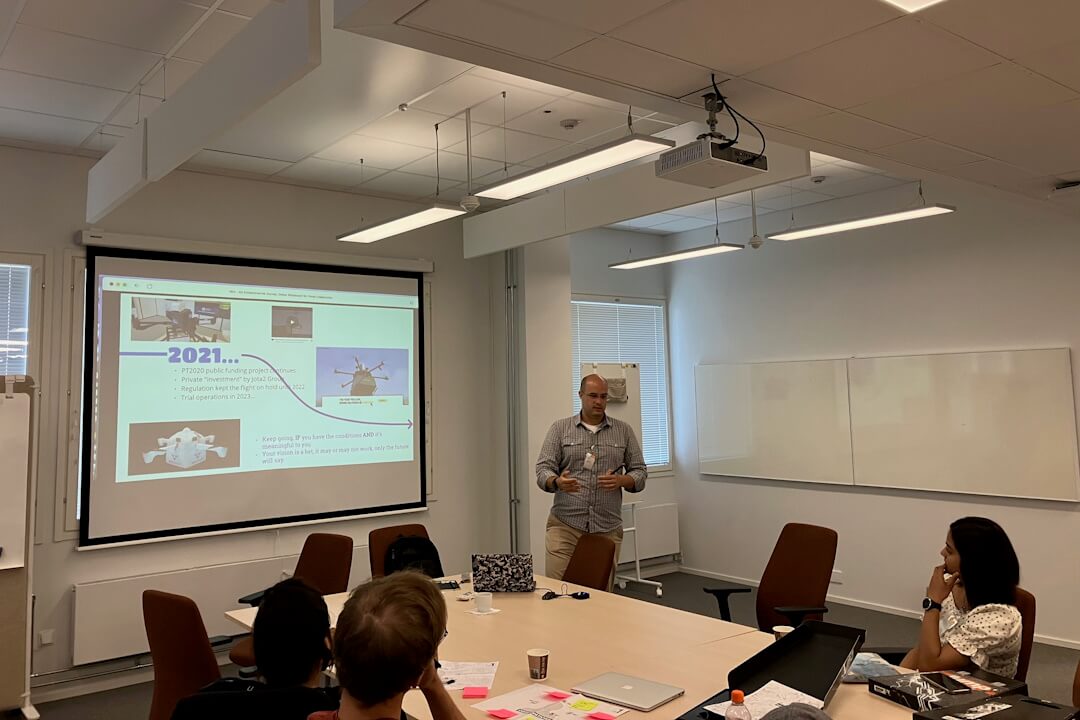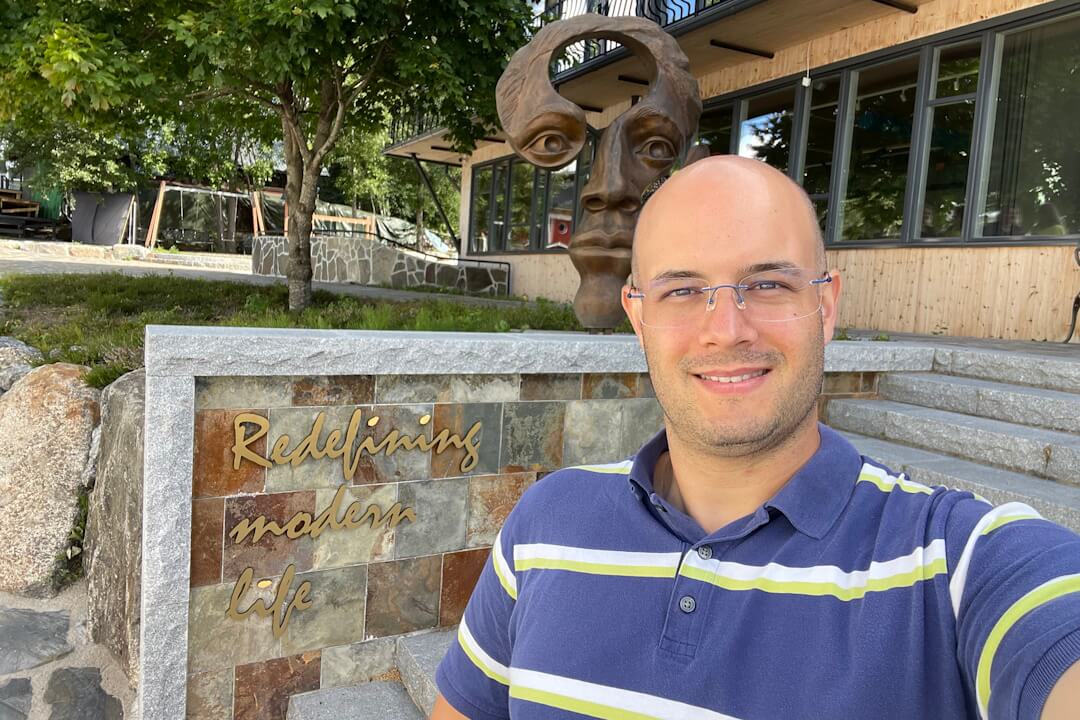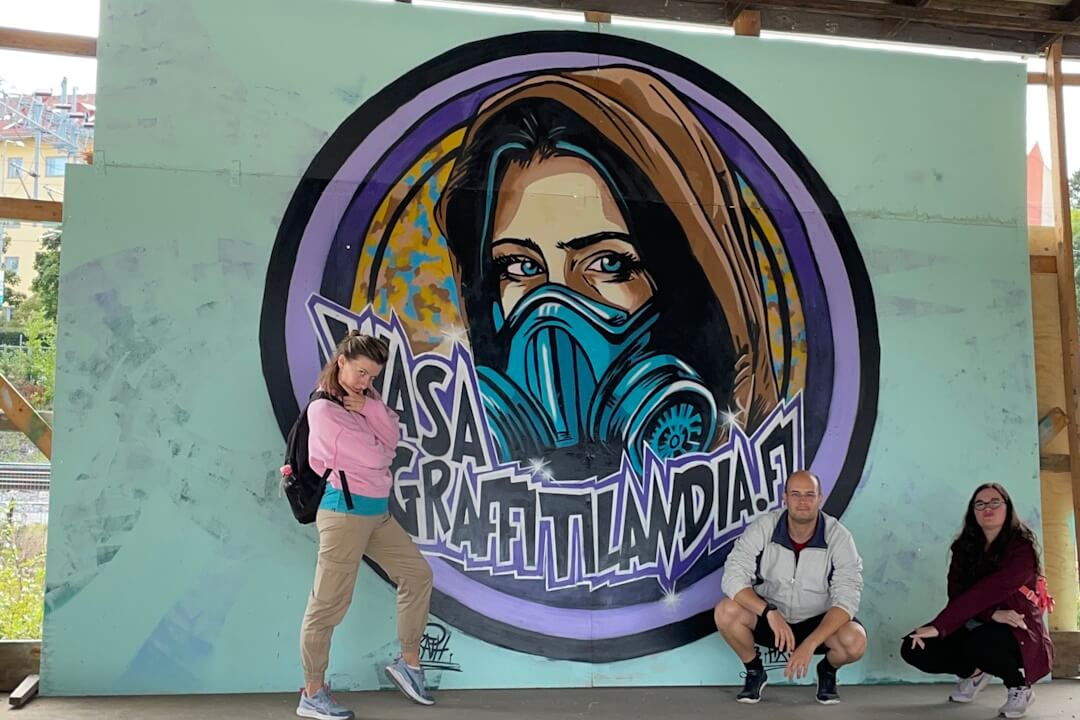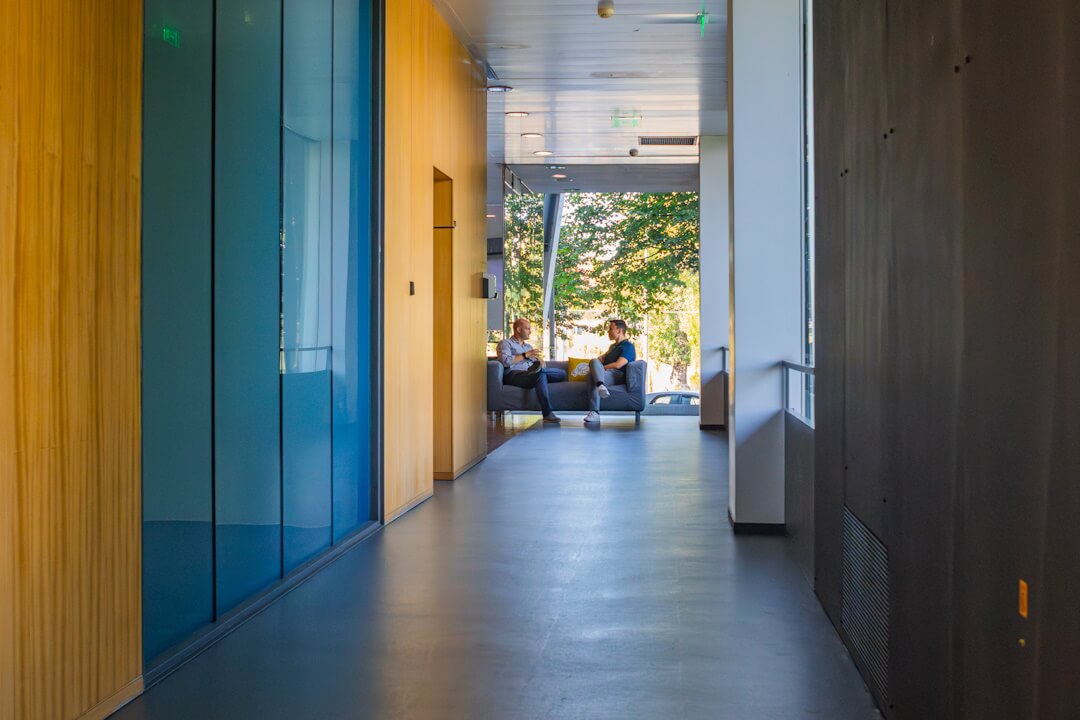“The Finns are a very pragmatic people, very good at executing a vision”
“The Finns are a very pragmatic people, very good at executing a vision”
At UPTEC we are always open to new ideas, innovation and challenges. In the "Open Doors" section, we present international innovation centres, external partners, investors and international experiences that enhance the UPTEC community. In this "Open Doors", we share the experience of Raphael Stanzani, Entrepreneurship Programme Manager at UPTEC, who travelled to Vaasa, Finland, to conduct a secondment under the OpenInnoTrain project. He stayed there for four weeks, participated in the entrepreneurship programme at the local University, and learned about the size of Vaasa's entrepreneurial ecosystem, sunlight's impact on Finns' lives, pragmatism in decision-making, and problems with labour qualifications they face. Everything to read in this "Open Doors".
OpenInnoTrain is a global network of researchers and industry professionals in Europe and Australia. UPTEC is part of this consortium with the University where Raphael stayed in Finland. OpenInnoTrain promotes the translation of research between University and industry through cooperation and open innovation in the cleantech, foodtech, industry 4.0 and fintech sectors. The research project focuses on open innovation and the translation of research between academia and industry, with a research consortium of 22 members across several countries.
What made you choose Vaasa as your secondment destination?
It was a set of factors. Here, at UPTEC, I am the manager of entrepreneurship programmes. One of the things that most motivated me in this choice was the combination of several events together, as a Summer School was planned. And the week before, there was going to be the Vaasa Future Festival, about the region’s future and the city itself. It was a unique opportunity to meet many people, see how they approach entrepreneurship, innovation and companies.
Furthermore, there would be the possibility of contacting other larger companies, such as Wärtsilä and Fortum. Everything was well planned, and a lot happened in a short time. An opportunity as unique as this, in which there is a combination of so many elements, was challenging to find, but fortunately, I could enjoy it.
And what did Vaasa and Finland have to offer that differentiated it?
Definitely because Finland is the furthest country from all the European OpenInonTrain options, and the most different culture from mine. Finland is a country very focused on environmental issues, with concerns regarding the summer period, when they have a lot of sun, and the winter, as in addition to being harsh, they have a relatively significant reduction in light, so I wanted to understand what it is like that people manage this. The options ranged from Barcelona, the closest, to Australia, which would be the most different of all, but among those in Europe, I think Finland and Vaasa are in a context of great change. They have a solid vision of growth through the University itself, which also wants to grow a lot, so it is interesting to see this bridge to the future being built.
And how did your integration into the team go?
It went very well! Everyone was very receptive, and the language barrier was the most complicated. In the first few days, I even had a headache (laughs), not because of people’s reception but because of being in a place that simultaneously has two different languages. It’s all in Swedish and Finnish. Sometimes, you can understand the meaning of some words in Swedish, but in Finnish, not even one (laughs). So the brain seems to be constantly trying to process and identify patterns… “I see this word a lot, what does it mean?”, but with Finnish, this is impossible to do. I think that impacted me the most because I processed a lot of information during the day and arrived at night a little tired, but how I was integrated helped me a lot in adapting.
They are receiving much more industrial demand than they can produce
In total you spent a month in Vaasa. How was the first week of activities?
In the first week, I immediately realized that they also have a big problem with qualified labour, to the point where they are receiving much more industrial demand than they can produce. And one of the main factors I mentioned just now is the language barrier. In Portugal, this has never been a big problem, because in the Brazilian and Spanish markets, for example, you can clearly understand what is said, but there, they have this problem because Finnish companies have all the processes and documentation in Finnish, so when they need a workforce to work, it’s not easy to find. In Finland, despite having Sweden so close, the total difference between languages makes it difficult to achieve optimized integration. Even the students who are there and who come from abroad, many didn’t know that it was necessary to have fluent Finnish to obtain nationality and to be able to get some job vacancies, so they regret the years they lost in which they could have learned speaking fluently, and they didn’t. To facilitate this process, they are transitioning to putting everything in English to make it easier to contract and break down the internal cultural and linguistic barrier. But it is a process that takes time. Employees who for years only used Finnish have to adapt too, so a new dynamic is emerging. That marked me right from the start.
And in the second week, the entrepreneurship programme started, right?
Yes, it lasted two weeks. The University of Vaasa Summer School on Ideation and Venture Creation was fascinating because it allowed us to see how they work regarding entrepreneurship programmes. First of all, the way they get people thinking in the first session, through the JumpStarter Kit. My approach has always been that I needed to give them a more sustained foundation right at the beginning, but then they got to the first session, they chose a problem, got together in groups and started working, and if they had any questions, they had the support materials. It was also interesting to see how people from different hemispheres worked together. There was a vast cultural diversity with varying dynamics of adaptation from Finland, Sri Lanka, South Africa, England, Afghanistan, and India. This week, I also visited the Kvarken Archipelago, near Vaasa, which I really enjoyed.
In the third week, where I participated in the Summer School on International Entrepreneurship, I also started to learn more about the city’s history and country. The company Wärtsilä, for example, has a very curious history. Initially based in Helsinki, it moved away from the capital because of bombings in the Second World War, and ended up settling in Vaasa. Initially, they specialized in boat engines, but with so much demand, they are now making engines for large vessels and have already begun the process of adapting these engines to produce energy with carbon-neutral fuels – hydrogen or ammonia – to compensate for periods without wind or solar sources, which are one of the main drivers of the economy. And then I realized that the Finns are very pragmatic people, very good at executing a vision, and this ties into what I saw in the first week, the search for solutions to achieve an objective.
The fourth week was the last Summer School, this one more focused on Scouting and Valuation of Startups, where I was able to be in the shoes of an investor, and we had the examples of Wärtsilä and Fortum, investors from the corporate world, who provided a more analytical contribution, focusing on answering critical questions about the type of investment that may exist, what has already been done, competition in the area, the state of implementation of the idea, among other factors. I understood how to help startups become more sellable and easier to find, and in that aspect, having a Corporate Venture Capitalist present was an outstanding contribution.
And what do you think of Finland as a country?
The country is very organized, much like Portugal. I don’t think it’s far ahead of Portugal. You can’t compare Porto with Vaasa, a tiny city, or Porto with Helsinki, which has little historical space because it was destroyed during the war. But you see a town that was designed to grow. The city of Vaasa itself is also very recent, around 100 years old, and all of them are created from scratch to mitigate the cold, which is very intense in winter. It starts right away, in the trash. There are no landfills, and when collecting waste, part goes to burn, and part goes to compost because when burning waste, they generate heat in houses through the city’s heating distribution system. Is it cold in winter? Yes, but the town is thoroughly prepared, and they can adapt. They won’t suffer because they can socialize, do activities and have a prepared environment.
What expectations did you have when going to Vaasa?
I wanted to understand how they think. The climate and the environment significantly affect people’s way of thinking, and I wanted to know how they prepare, manage their ambitions, and consume. I quickly managed to understand some of their habits and routines… At 10 pm, shops close, and even if you are in a restaurant open later on Saturdays, the traffic drops a lot. As it gets frigid in winter, in summer, despite having a lot of light, the Finns maintain their routine and stay at home more. It reached the end of the day, and at 11 pm, it wasn’t night, it was gray. The peak of summer is in July, and in August, they start returning to work. I attended the end-of-summer celebration party, Night of The Arts, with many people coming from the countryside to the city to celebrate. Meeting all these people was fantastic; they welcomed me nicely and affectionately and supported me in everything. I was very well received. Finns seem cold, but I felt that when they are with you, they want to talk and exchange experiences. They don’t want to make that small talk and leave. They like to talk.
And what about the entrepreneurial ecosystem?
At first, I thought I would find more startups, but then I realized that Vaasa is still a few steps behind what we have here in Porto; this year, they intend to follow the opposite path I took and have people here to get to know the ecosystem, see how can they take things to the next level. For Vaasa, Porto’s ecosystem can be a good reference point to see how they can take advantage of the university environment, which has many students, and promote the creation of new projects in a more entrepreneurial environment.
Besides the language barrier, what was the biggest challenge you felt they faced?
As there are a lot of jobs, entrepreneurship ends up becoming less evident because companies are hiring. Some companies are growing a lot, so it is not conducive to entrepreneurship because the job market is intense. But there comes a time when there is a balance again, and people leave large companies to create their own smaller companies.
What did you like most about this experience?
A difficult question. I did many things that left an impression on me. In the first week, being able to attend the Wasa Future Festival was good, I was able to do the Helsinki Half Marathon, which I enjoyed. I visited many parks and places where you can walk and run, and I can say that you eat well in Finland – some different combinations of Portuguese cuisine, but very tasty. I also visited the collection of pinball machines and games belonging to a colleague I met in Vaasa, I saw an incredible graffiti area, and I was able to finish with a flourish with the visit to the Kvarken Archipelago, on an 84km bike trip, which allowed me see much of the beauty of that region.
But if you could highlight just one?
It would be the part of human relationships with other people, the deepening of conversations over time. Having these moments of presence and conversation, which were constant during these four weeks, was pleasant. It was a fantastic experience!
